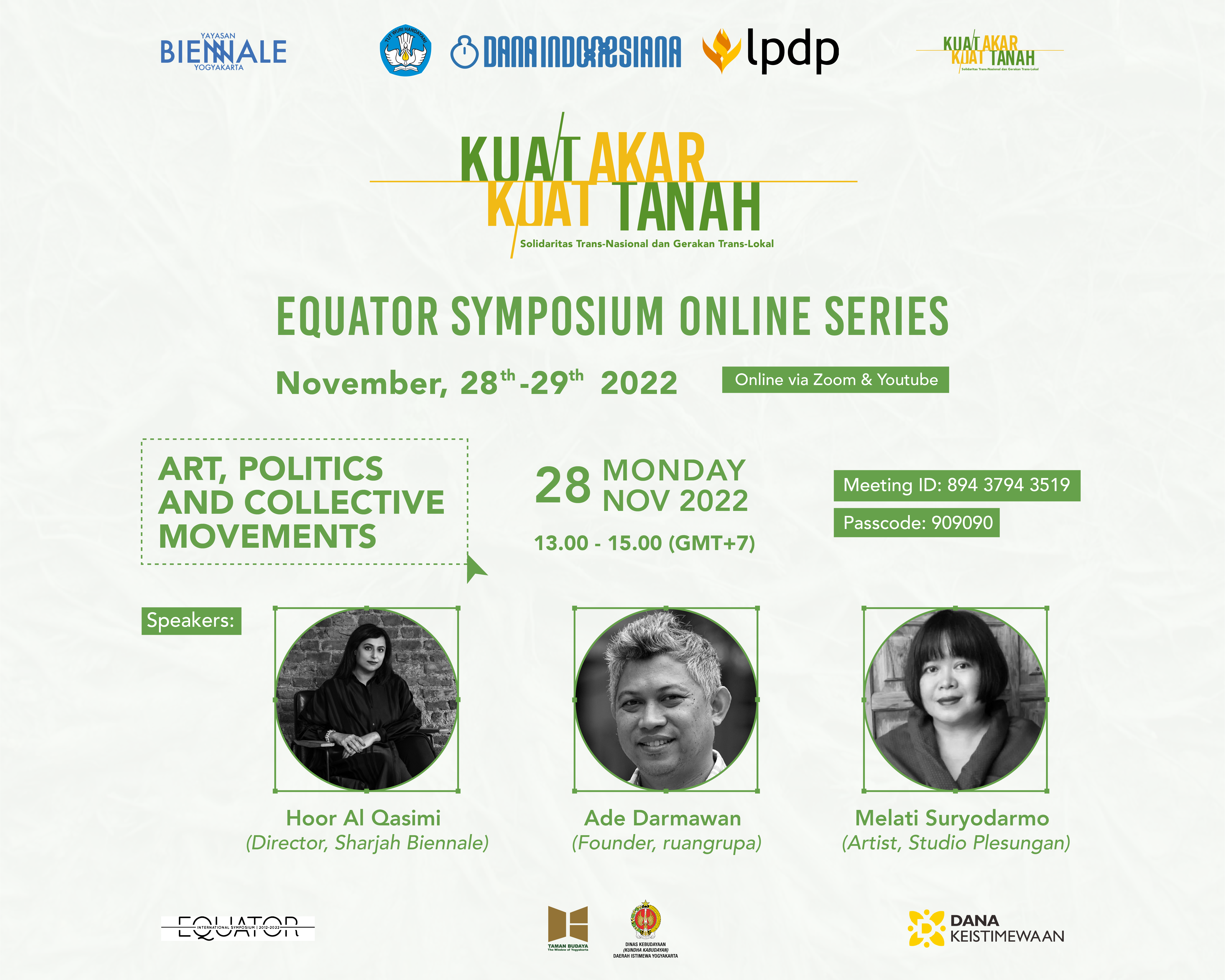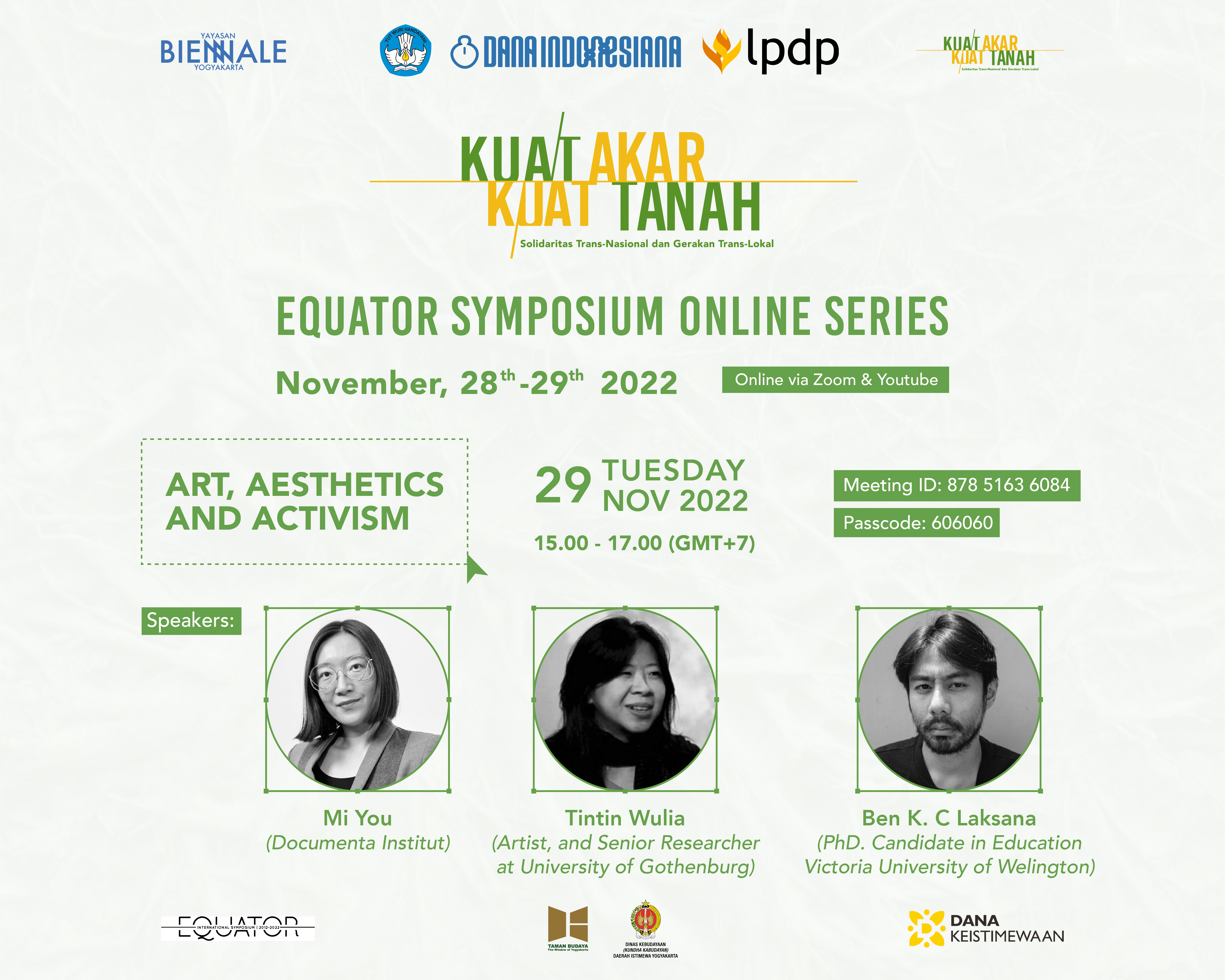The world is changing, the art is changing. With the new imagination of world cartography that yearns for equality more, how can such a negotiation be read as an offer for a new, more egalitarian, and democratic collaboration between art institutions in various contexts? How do art festivals—biennales, documenta, festivals—respond and are responded to by the wider socio-political context and become part of a collective movement? How do artists and curators engage with local communities, tap into their experiences and knowledge, and then incorporate all of this into the process of creating and creating works of art in solidarity?
The Equator Symposium Online Series 2022 has been held virtually on 28-29 November 2022. This year the Equator Symposium raised 2 interesting themes, namely “Art, Politics and Collective Movements” by presenting Hoor Al-Qasimi, Ade Darmawan, and Melati Suryodarmo; as well as the theme “Art, Aesthetics and Activism” which presented Tintin Wulia, Ben KC Laksana and Mi You (unable to attend).
Equator Symposium Online Series 2022 Hari 1 : “Art, Politics and Collective Movements”
On the first day of the Equator Symposium Online Series, Hoor Al-Qasimi, Ade Darmawan, and Melati Suryodarmo discussed the role of “festivals” or events such as biennales or documenta as spaces for political solidarity and how their institutions relate to wider politics. large. movement. This session also discussed the role of Biennales or major art events after the pandemic and other impacts, including the decolonization movement and the possibility of changing the model of biennales or any major art events in the future. How do they engage and envision the public and local communities? The following is a video documentation of the Equator Symposium Online Series 2022 “Art, Politics and Collective Movements”. Check it out!
Equator Symposium Online Series 2022 Hari 2 : “Art, Aesthetics and Activism”
On the second day of the Equator Symposium Online Series, Tintin Wulia and Ben KC Laksana talked about how the ideas of art, aesthetics, and activism are interrelated. Their perspective in interpreting objects and creating situations that involve the audience and involvement. Re-reading Mi You’s the critical essay for Documenta and how he connects the socio-political context in Indonesia that influences collectivity conceptions and artistic movements with shared aesthetic ideas. This session also talks about the role of art in society as a form of activism, how artists have their perspectives and considerations for space, and art as a cultural archive. The following is a video documentation of the Equator Symposium Online Series 2022 “Art, Aesthetics and Activism”. Check it out!


